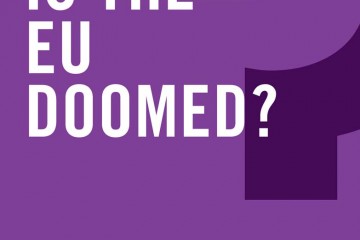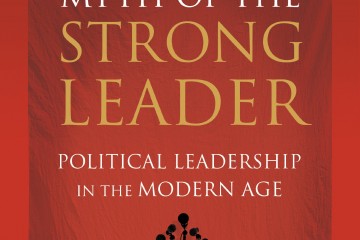OxPol is launching a new series in which contributors are invited to review recent books written by Oxford academics. This series hopes to encourage greater cross-divisional engagement of the Oxford graduate community with the work of the university’s top academics.

A Critical Case: The United Kingdom and New Public Management
Julián López Murcia interviews Christopher Hood and Ruth Dixon about their new book ‘A Government that Worked Better and Cost Less? Evaluating Three Decades of Reform and Change in UK Central Government’ which recently won the 2015 Louis Brownlow Book Award from the US National Academy of Public Administration.

When States Act Emotionally: Professor Todd Hall Answers Questions on His New Book
In this interview, Todd Hall comments on some of the key aspects of his most recent publication Emotional Diplomacy: Official Emotion on the International Stage. How do state representatives use emotional displays strategically and what can they achieve by applying emotion to diplomacy? How do anger, sympathy and guilt feature in international relations? It is with clarity and distinction, that Todd Hall lays out how emotions are used to influence outcomes in international relations, both in theory and in practice.

Democracy, Development and Income Distribution
A Review of Inequality and Democratization: An Elite-Competition Approach, by Ben Ansell and David Samuels In this dense and absorbing review, Professor Ben Ansell explains how past and current models have failed to capture the paradox that development may lead to greater income inequality. He explores the roles of actors and structures in his own approach to the study of this relationship and casts a critical light on the plight of those who live in poverty despite democratization. Turning to the other end of the income spectrum, he discusses the global trend towards capital mobility and how it relates and affects different political systems. Overall, Inequality and Democratization raises a number of critical and highly relevant questions concerning the relationship between …

Law, Legitimacy and Morality of Warfare: A Conversation about ‘Legitimate Targets?’
In the following conversation concerning her recent publication, Dr. Janina Dill, Departmental Lecturer in International Relations at the University of Oxford, navigates a clear-cut path through concepts of International Law (IL), legitimacy and morality in warfare. From a theoretical perspective, she explains the relationship between constructivism, IL and international relations and highlights how our understanding of this relationship may be better informed through new concepts such as ”behavioural relevance” and “normative success”. From a practical perspective, she examines the historical shift in the conduct of warfare and the use of drone warfare by the United States. In response to Brett Rosenberg’s questions, Dr. Dill contemplates whether there are in fact legitimate targets in war. Many have argued that International …

‘Is the EU doomed?’ by Jan Zielonka
“Interesting times await us in any case.” That is the enigmatic and yet telling prognosis Professor Jan Zielonka extracts from an array of convoluted developments in recent European politics. Surveying sharp discrepancies in national employment levels, debt crises, anti-establishment political parties, and creeping disengagement against the backdrop of constant cacophony, Professor Zielonka explores the divergent effects of integration, the changing role of state actors and the prospects of the European Union in the not-so-distant future.

‘The Myth of the Strong Leader’ by Archie Brown
Just under a decade ago, Archie Brown highlighted several factors that he thought limited the explanatory power of comparative politics as an academic discipline. Such factors included undue emphasis on studying democracies at the expense of autocracies, a lack of methodological pluralism, inadequate attention given to understanding political leaders, its separation of domestic and international relations, and its increased isolation from the “real world of politics” that the discipline sought to explain.[1] ‘The Myth of the Strong Leader’ is a book that addresses all of these criticisms demonstrating both erudition on behalf of Brown and a keen ability to practice what he preaches. This book may well be a significant point of reference to political scientists and the general public. …

